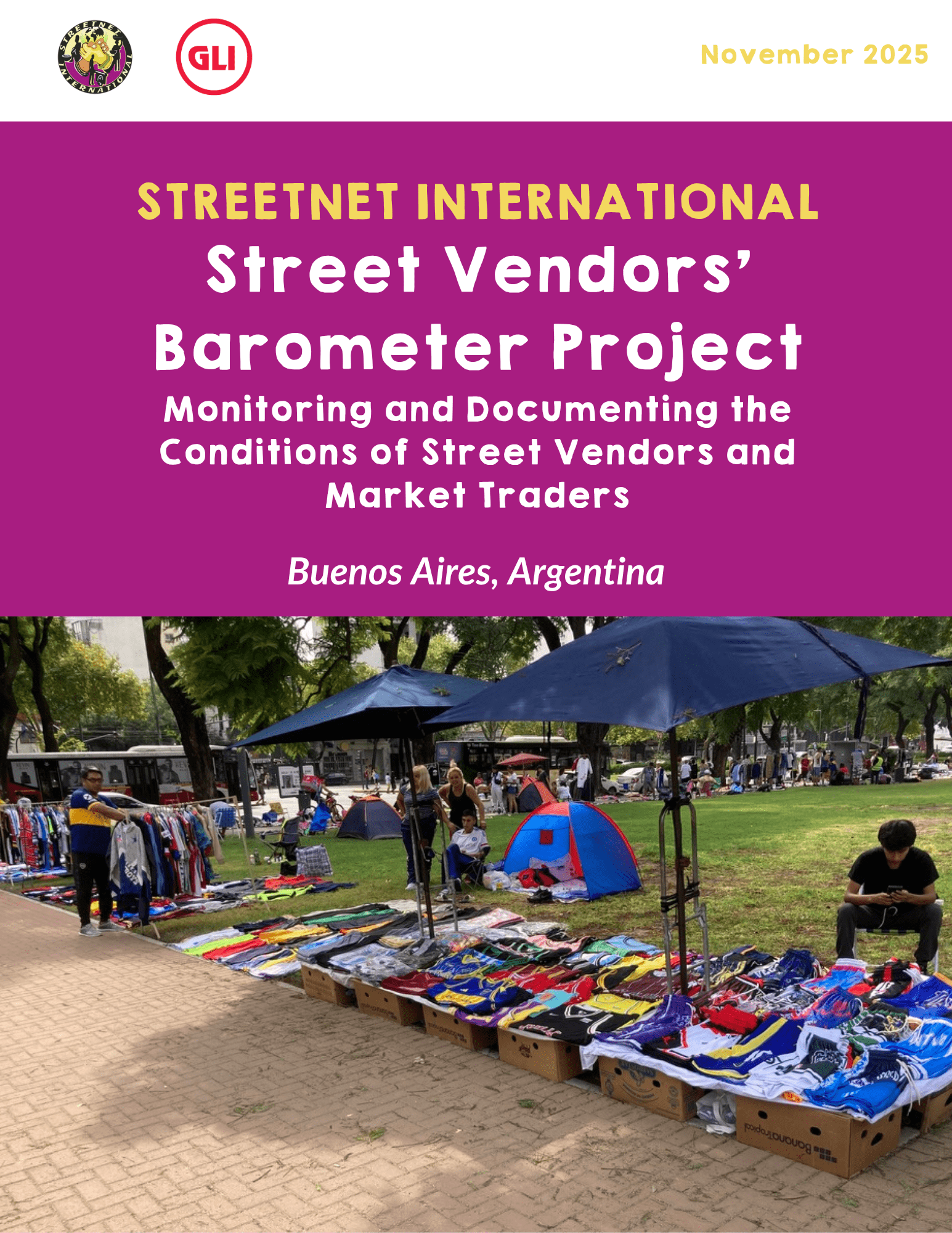In 2024, in partnership with the Global Labour Institute (GLI), StreetNet International (SNI) launched the Barometer Project as part of its advocacy and implementation strategy for SNI Resolution on ‘Initiating implementation of the ILO Recommendation 204 through collective bargaining with informal economy workers’ participation.’ The project coincided with the ILO’s 2025 International Labour Conference (ILC), during which a general discussion took place on ‘Innovative approaches to tackling informality and promoting transitions towards formality to promote decent work.’ The Barometer project aims to monitor and document the conditions of street vendors and market traders by:
- Developing a detailed understanding of the livelihoods, characteristics and key issues faced by street vendors and market traders.
- Informing SNI on key thematic areas for further exploration in the project, with particular reference to opportunities for the formalisation of informal employment (improved livelihoods and working conditions, protection from harassment and violence, freedom of association, the right to work without restrictions, access to social protection, and recognition, engagement in collective bargaining and consultation with authorities).
- Strengthening the capacity of SNI affiliates to conduct future research and monitoring and produce credible evidence for policy engagement at national and international levels.
The project was framed within the ILO Decent Work Agenda [5]. Six benchmarks were identified to be used for the project:
- Involvement in social dialogue
- Protection from violence and harassment
- Right to work without restrictions
- Access to social protection
- Opportunities to formalise informal employment
- Decent employment conditions for street vendors
Two cities were selected as pilots for the Barometer Project:
- Harare, Zimbabwe, with Zimbabwe Chamber of Informal Economy Associations (ZCIEA)
- Buenos Aires, Argentina, with Unión de Trabajadores de la Economía Popular (UTEP)
This report presents the findings from the research carried out in Buenos Aires, Argentina.


